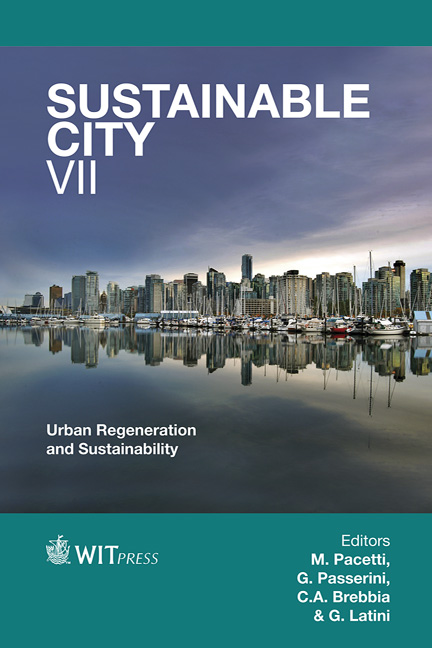Urban Entropy Vs Sustainability: A New Town Planning Perspective
Price
Free (open access)
Transaction
Volume
155
Pages
10
Page Range
195 - 204
Published
2012
Size
612 kb
Paper DOI
10.2495/SC120171
Copyright
WIT Press
Author(s)
R. Fistola
Abstract
The city, interpreted as a complex dynamic system, is experiencing ungovernable levels of entropic growth related to locally-based human activities. Indeed, the main antagonist of urban sustainability is anthropogenic entropy. The general crisis is due to the production of entropy within single urban subsystems, which is transmitted, with a ripple effect, to all the others and to the entire city. Due to endogenous malfunctioning in its parts or in its structure, a subsystem can be viewed as an \“entropic generator” and can trigger a chain of damage that can lead to the collapse of the entire urban system. The urban crisis can thus be linked to the entropy produced, especially within the human subsystem. In order to start appropriate processes that gear the structure of the urban system towards sustainability measures, it is first necessary to reduce urban entropy. New procedures are being developed to plan sustainable cities which, in a cyclical process, are also rooted in social capital. Entropy can be distinguished in directaction, expressed as soil use (how, where, for how long) and entropy-induced action which is carried out by the activities producing air, electromagnetic noise, water pollution. This paper, also starting from the studies developed by E. Tiezzi and the paper by F. Muller (presented at \“Sustainable city 2010” in La Coruňa), seeks to identify the characteristics of anthropogenic entropy in order to propose the adoption of a new \“urban ethic” which has to become one of the determinants of eco-town planning. Keywords: sustainable city, complex system, systemic approach, entropy, ecotown planning.
Keywords
sustainable city, complex system, systemic approach, entropy, ecotown planning.





